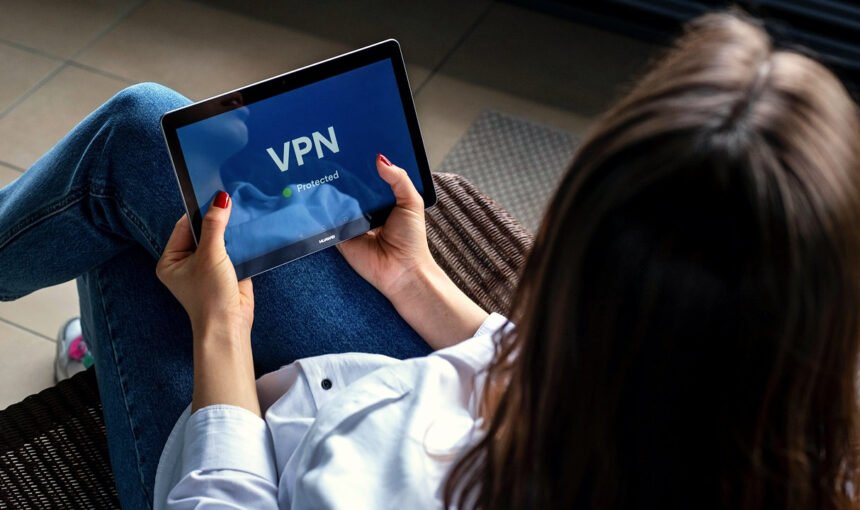Let’s talk about something crucial for us digital nomads: VPNs. You know, those things that encrypt your internet connection and make it look like you’re browsing from Timbuktu even when you’re sipping a cappuccino in a Parisian café. I used to think VPNs were just for tech wizards and folks with something to hide, but after years of hopping across continents with my trusty laptop, I’ve realized how essential they are for every traveler.
Think of a VPN like a secret tunnel for your online data. When you connect to that dodgy airport Wi-Fi, a VPN scrambles your information, making it unreadable to any snoopers lurking nearby. It’s like sending a postcard written in invisible ink – only the person with the decoder ring can read it.
So, why should you care about this as a traveler?
Well VPNs offer a range of compelling benefits for travelers, making them a worthwhile investment for those who prioritize online security, privacy, and accessibility
- Enhanced Security on Public Wi-Fi: Public Wi-Fi networks at airports, cafes, and hotels are often unsecured, making them vulnerable to cyberattacks. When you connect to a public Wi-Fi network without a VPN, your online activity, including sensitive information like login credentials, financial data, and personal messages, can be easily monitored and intercepted by malicious actors. A VPN encrypts your internet traffic, creating a secure tunnel that shields your data from prying eyes and safeguards your sensitive information from potential theft. Moreover, VPNs can help travelers access sensitive accounts like bank accounts and credit cards securely, adding an extra layer of protection for managing finances while on the go. To further enhance security on public Wi-Fi, it’s crucial to disable file sharing and Wi-Fi auto-connect, preventing potential access to your files and automatic connections to potentially malicious networks.
- Bypass Geo-Restrictions: Many websites and online services restrict access based on your location, which can be frustrating for travelers who want to access their favorite streaming services, online banking platforms, or social media accounts while abroad. A VPN allows you to bypass these geo-restrictions by masking your IP address and making it appear as if you’re browsing from a different country. This unlocks a world of content and services that may be unavailable in your current location. For instance, a VPN can enable you to access your online banking securely while traveling, as some banking sites might block access from foreign countries due to security concerns. Interestingly, VPNs can also help you get better deals on flights and hotels by masking your location. Travel websites and airlines often use dynamic pricing based on your location, and a VPN can help you find more affordable options by appearing to browse from a different region. However, it’s important to note that some websites and streaming services employ advanced VPN detection measures to block VPN users, so finding a reliable VPN that can bypass these restrictions is crucial.
- Improved Privacy: When you use the internet without a VPN, your internet service provider (ISP) can see all your online activity, including the websites you visit, the apps you use, and even the content of your communications. This information can be used to create a detailed profile of your online behavior, which can be sold to advertisers or shared with government agencies. A VPN encrypts your traffic and hides your IP address, making it much harder for your ISP to track your online activity and protecting your privacy. It’s important to highlight that VPNs not only protect your data but also conceal your online identity, making it harder for third parties to track your online activity and build a profile of your browsing habits.
- Secure Online Transactions: When you make online purchases or access your bank account while traveling, ensuring the protection of your financial information is crucial. A VPN encrypts your connection, making it much harder for hackers to intercept your credit card details or other sensitive data. This provides an extra layer of security when conducting online transactions, especially on public Wi-Fi networks.
- Access Local News and Content: Staying informed about local news and events can be important for travelers, especially when visiting unfamiliar destinations. However, some online news publications and websites may be geo-restricted, limiting access to users in certain regions. A VPN allows you to access local news and content by masking your IP address and making it appear as if you’re browsing from within the desired region.
- Simultaneous Connections: When choosing a VPN, it’s essential to select one with no restrictions or extra fees for simultaneous connections. This allows you to protect all your devices, such as laptops, smartphones, and tablets, with a single VPN subscription, ensuring comprehensive security for all your online activities while traveling.
While VPNs offer numerous advantages, there are also potential drawbacks that you should be aware of before deciding if VPN is right for you.
- Slower Connection Speeds: VPNs can sometimes slow down your internet connection speed due to the added latency of routing your data through an additional server. The extent to which a VPN affects your speed depends on various factors, including the distance to the VPN server, the encryption protocol used, and the overall quality of the VPN service.
- Compatibility Issues: Some websites and apps may not function properly when a VPN is enabled. This can be due to various reasons, including the VPN’s encryption interfering with the website’s security protocols or the website blocking IP addresses associated with VPN servers. Additionally, VPN compatibility issues can arise with Wi-Fi networks, such as network restrictions, dual-band Wi-Fi issues, signal interference, and network congestion.
- Cost: While there are some free VPN services available, the best VPNs typically require a paid subscription. This can be an added expense for travelers, especially those on a tight budget. However, it’s important to note that free VPNs often have slower speeds, privacy concerns, and limited customer support, making them less suitable for travelers who prioritize security and reliability.
- Insecure VPNs: Some VPNs, particularly free ones, may be insecure and collect and sell user data, compromising your privacy. Choosing a reputable VPN provider with a strong commitment to security and privacy is crucial.
- False Sense of Security: While VPNs enhance your online security and privacy, they don’t make you completely anonymous or invulnerable to cyberattacks. It’s still important to practice safe browsing habits, such as avoiding suspicious websites and links, using strong passwords, and keeping your software updated.
- Limited Device Compatibility: Some VPNs may not be compatible with all devices or operating systems. This can be an issue for travelers who use multiple devices, such as laptops, smartphones, and tablets.
- Legal and Ethical Implications: Using a VPN to access geo-restricted content or bypass censorship measures may infringe upon local laws. It’s also important to highlight that using a VPN doesn’t make you immune to legal consequences if you engage in illegal activities while connected to a VPN server.
If you’re hesitant about using a VPN, there are alternative options to consider for enhancing your online security and privacy while traveling
- Secure Browser: Using a secure browser, such as Tor, can provide a higher level of privacy and anonymity compared to regular browsers. Tor routes your internet traffic through a network of volunteer-operated servers, making it much harder to track your online activity.
- Avoid Public Wi-Fi: If possible, avoid using public Wi-Fi networks altogether. Instead, use your mobile data connection, which is generally more secure.
- Use a Secure Wi-Fi Hotspot: If you must use public Wi-Fi, consider using a portable Wi-Fi hotspot. This creates a secure, private network for your devices, protecting your data from prying eyes.
Ultimately, whether or not to use a VPN is a personal choice. But as someone who’s seen firsthand the risks of unprotected internet use, I’d say it’s a worthwhile investment for any traveler. After all, who wants to spend their vacation dealing with identity theft or online scams?
Adrenaline junkie with a passion for exploring off-the-beaten-path destinations and finding unique ways to stay active. Expect stunning scenery, challenging workouts, awesome travel tips and a whole lot of fun. Let’s get sweaty and explore the world together!




